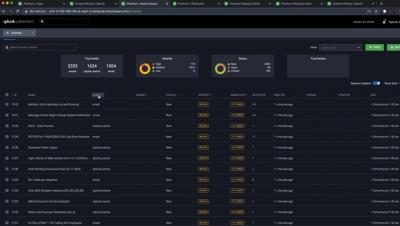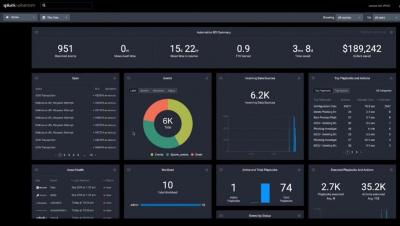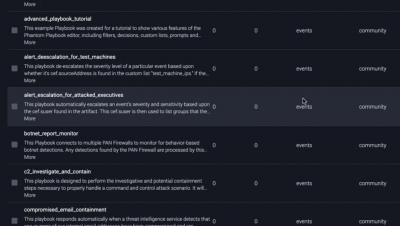Security | Threat Detection | Cyberattacks | DevSecOps | Compliance
%term
Splunk SOAR Feature Video: Main Dashboard
Splunk SOAR Feature Video: Playbooks
64 times worse than ransomware? FBI statistics underline the horrific cost of business email compromise
The FBI is reminding organisations of the serious threat posed by business email compromise (BEC) scams, declaring that it caused over $1.8 billion worth of losses to businesses last year. The newly-published annual cybercrime report from the FBI’s Internet Crime Complaint Center (IC3) reveals that it had received a record number of complaints and claims of financial loss – with internet crime causing more than $4 billion in losses.
What Is FISMA Compliance? Key Requirements and Best Practices
It should come as no surprise that the federal government takes cybersecurity compliance quite seriously. After all, federal agencies manage massive stores of data related to national and international security and public health, as well as the personal information of most residents of the country. FISMA (the Federal Information Security Management Act) defines a set of security requirements intended to provide oversight for federal agencies on this front.
HAFNIUM: Protecting Your Exchange Server from Data Exfiltration
In early March, Microsoft reported a large, coordinated attack that exploited critical vulnerabilities in Exchange Server 2010, 2013, 2016 and 2019 in an attempt to exfiltrate credentials and other sensitive information from organizations’ mailboxes. Microsoft attributed this attack to a sophisticated Chinese group code-named HAFNIUM. The first detected attempts date back to January 2021.
Orchestrate Framework Controls to Support Security Operations with Splunk SOAR
Every security team should utilize security frameworks in their strategy and tactics to help reduce risk from common cybersecurity threats. Security frameworks guide organizations on how they should develop, build, and maintain their IT security policies and procedures while sharing best practices for meeting compliance requirements. Healthcare operations in particular are often presented with increasing regulatory scrutiny and obligations that must be met in order to be competitive.
Security checklist for using cryptocurrency in online casino transactions
Cryptocurrency (crypto) transactions are solely reliant on the online space. Billions of people have access to online platforms. The autonomy provided by cryptosystems exposes users to more danger as there are no centralized authorities. Thus, expert fraudsters such as hackers may be able to access your transactions via their computer.
Vulnerability Management: Top 6 Best Practices for Developers in 2021
Companies with a presence on the internet and widespread networks are increasingly being targeted by malicious code writers. There’s ample evidence to suggest hackers and Advanced Persistent Threat (APT) groups routinely run campaigns trying to snare employees, contractors, etc. to steal data or hold it for ransom. Simply put, cyber threats and cyberattacks are on the rise.
Backstage integration with the Snyk API
Backstage began life as an internal project at Spotify and was released as an open-source project in 2020. Its original intention was to be a central location where the company had a registry of all software they had in production but has since evolved into a much more advanced platform, including a plugins system that helps users extend the platform. This plugin system is a significant reason for Backstages success and drove adoption within the company.










